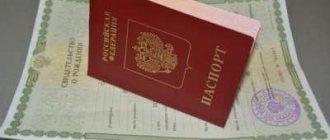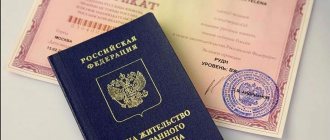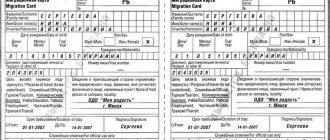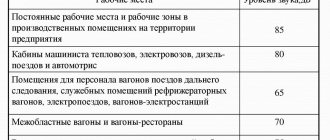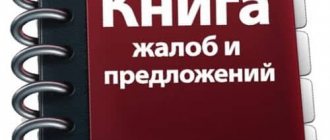14
There are unimaginable legends about the activities of specialists from guardianship departments in the Russian Federation. Rumor has it that a specialist can come to any home and pick up a child at his discretion. They do not require a reason for withdrawal. After which, the children are sold to families who want to adopt the child. However, the law strictly regulates the activities of guardianship departments. In 2021, Russian legislation does not contain signs of juvenile justice adopted in European countries. Let's look at the reasons why a child may be removed from the family by guardianship authorities and how parents should react.
When can guardianship authorities pick up children?
The removal of children is carried out on the basis of the relevant act for several reasons:
- Deprivation of parental rights (Article 69 of the RF IC): evasion of parental obligations, abuse of rights, child abuse, chronic alcoholism or drug addiction, commission of a deliberate crime against the life and health of a minor, sexual integrity.
- Restriction of rights (Article 73 of the RF IC): a combination of difficult circumstances, alcoholism or drug addiction, other difficult situations that pose a threat to the health and life of the child.
- Emergency removal in situations where parents pose a threat to the life, psychological and physical health of the child, or do not prevent such a threat.
In all cases, an act on the removal of the child is drawn up. Subsequently, representatives of the guardianship and trusteeship authorities notify the prosecutor's office and provide temporary placement for the minor, and then within 7 days file a claim in court for deprivation or restriction of parental rights.
Note! If children find themselves in difficult situations due to the fault of their parents, guardians, or adoptive parents at night or on weekends, the seizure is carried out by police officers together with a traffic police inspector.
Conclusion: a child is taken away urgently only if staying with his parents poses a danger to him. For selection, an order from the administration or the head of the organization is required; for deprivation or restriction of rights, a court decision is required.
Where do child guardianship authorities take children?
Until the issue of restriction or deprivation of rights is resolved, children are placed in temporary shelters for minors and rehabilitation centers on the basis of deportation acts and other documents.
If a child requires medical attention, he is sent to the hospital. Psychologists work with children for some time to determine their mental state and promptly eliminate problems.
Normative base
Although a sufficient number of legislative acts are devoted to the issues of parents’ responsibilities in relation to their children, their big problem lies in the lack of a detailed interpretation of the existing legal norms.
For example, Art. 63 of the RF IC establishes that parents are obliged to ensure the full physical, mental and spiritual development of children. There is no explanation as to what is meant by such development. It turns out that the interpretation of the law is carried out by employees of the guardianship and trusteeship authorities and judges. Expert commentary
Gorchakov Vladimir
Lawyer
This situation often leads to distortions in the judicial-executive system when resolving the issue. Those. in practice, in a number of cases no action is taken against clearly marginalized families, because guardianship officials do not see any violation of the law in their actions. But for a simple oversight, parents can be subject to a serious fine. The system and procedure for removing a child from a family also has many shortcomings at the legislative level.
The following articles are devoted to it in the Family Code:
| Art. 69-70 RF IC | establish the reasons why it is permissible to deprive parental rights and regulate the procedure for exercising |
| Art. 71-72 RF IC | indicate the consequences for parents and children that occur after deprivation of parental rights and prescribe the possibility of their restoration if a number of conditions are met |
| Art. 73-76 RF IC | regulate the reasons, implementation and consequences of the procedure for restricting parental rights |
| Art. 77 IC RF | establishes the reasons and procedure for removing a child from a parent or both |
The issue related to parental rights is also regulated by a number of federal laws:
| Federal Law of the Russian Federation No. 120 (dated 06.24.1999) | considers issues related to the neglect of minor children |
| Federal Law of the Russian Federation No. 124 (dated July 24, 1998) | establishes a list of rights that minor citizens of the Russian Federation have and determines the procedure for their implementation |
| Federal Law of the Russian Federation No. 159 (dated December 21, 1996) | guarantees additional measures of social support for children left without parental care, i.e., in particular, those in respect of whom citizens have been deprived of parental rights |
How is a child removed?
The selection procedure is regulated by Art. 77 of the RF IC, Resolution of the Plenum of the RF Armed Forces dated November 14, 2017 No. 44, as well as regional legislative acts.
Step by step everything looks like this:
- The OiP receives a signal from the police, citizen, educational or other institution that the child is in danger.
- A commission is created, which includes a OO&P specialist and a traffic police inspector. Additionally, by agreement, the police, representatives of Social Security or health care institutions are involved.
- The commission immediately goes to the address of the child’s location, where it establishes his identity, clarifies information about the parents, examines the living conditions, identifies circumstances that pose a danger to the life of the minor, examines him externally for beatings, illnesses, etc.
- If the circumstances presented above are established and it is not possible to immediately eliminate the threat, the commission takes a written application from the parents to temporarily place the child in a special institution. If the application cannot be received, the commission makes a decision on immediate selection, and a petition for withdrawal is submitted. It must be sent within 24 hours after drawing up the housing inspection report.
- Within 24 hours after receiving a written application and an inspection report from the commission, the head of the POiP or an authorized person in the municipal administration draws up a selection act.
- After the act of confiscation is drawn up, the prosecutor's office is immediately notified, and after 7 days a claim is filed to limit or deprive the rights of the parents.
Having received the act of removal, the commission removes the child from the family and places him in a temporary detention center. He may be granted preliminary or permanent guardianship by close relatives.
If a guardian is not found, the interests of the minor are represented by employees of the educational institution or the institution in which he is located.
Important! It usually takes two days from checking the living conditions to receiving the withdrawal certificate. At this time, a specially created commission must ensure safe living conditions for the child at his actual location.
Sample petition to send a child to a specialized temporary detention facility
The form of the application is determined by the regional authorities independently.
The document must contain the following information:
- Full name, position of the head of the organization;
- date, time, city of compilation;
- Full name, date of birth of the child;
- details of the living conditions inspection report;
- a request to draw up an act of selection;
- information about the temporary detention facility where the child is being sent.
At the end, the signatures of all commission members are placed.
Sample petition to send a child to a specialized temporary detention facility:
Consultation on document preparation
Sample act on the removal of a child
Like the petition, the form of the act is approved by local authorities, but must contain a complete list of data:
- date, time, place of registration;
- FULL NAME. authorized person drawing up the act;
- information about the remaining members of the commission who were present during registration (minimum 2 people);
- Full name, date and place of birth, place of study of the minor;
- information about parents: full name, residential address, place of work;
- place, circumstances and time of identification of a child in need of help;
- other circumstances of legal significance;
- decision to remove a child from its parents;
- information about the institution where the minor will be placed;
- date of compilation and signature.
Note! The selection order is drawn up in two copies, one of which is given to the parents. On the second, they put signatures confirming familiarization.
Sample act on the removal of a child from parents:
Consultation on document preparation
Case Study
Let's consider a practical example of separating a minor in the most common situation - parental alcoholism:
The Ananenko family has four children under 18 years old, the youngest is 3 years old. Parents do not work anywhere and abuse alcohol. Children do not have good clothes, they are all behind in development due to lack of parental attention and activities. Their mother and father systematically beat them while they are drunk.
During the next beating of children, the neighbors of the Ananenko spouses called the police. Upon arrival, the squad confirmed this fact, and a notification was sent to the POiP. The children needed immediate medical attention, so the police called an ambulance team to the scene. All were taken to the hospital with injuries of varying severity.
At this time, a commission consisting of representatives of OOiP, Social Security, and a traffic police inspector was already working on site. Based on the results, an inspection report on living conditions was drawn up, and a petition was drawn up to remove the children. Within 24 hours, a notification was submitted to the prosecutor's office to resolve the issue of initiating a criminal case and depriving the parents of their rights.
After discharge from the hospital, the children were placed in a temporary boarding school by decision of the Department of Internal Affairs. The guardianship staff also filed a claim to deprive the parents of their rights. The claim was satisfied, and the four minors were granted preliminary guardianship by their aunt.
Application to the guardianship authorities for an inspection
How to obtain permission from the guardianship authorities to sell an apartment with a share of a minor child?
Grounds for removing a child from the family
The only legitimate reason for the immediate removal of a child from the family is an immediate threat to his life and health. But in addition to immediate removal, there are other procedures in which a child is removed from the family:
- Parents are deprived of parental rights . Based on Art. 69 of the RF IC, a child can be taken away from the family only after a court decision has entered into legal force. In this case, the execution of the court decision is entrusted to bailiffs with the obligatory presence of an employee of the guardianship and trusteeship authorities. If necessary, it is possible to additionally involve police officers. In cases where a young child under the age of three is removed from the family, a medical professional may be involved.
- A decision was made to limit the parental rights of the mother and father ( Article 73 of the RF IC ) . The procedure is identical to the removal of a minor upon deprivation of parental rights.
- There is an immediate threat to the life and health of the baby ( Article 77 of the RF IC ) . seizure occurs immediately upon detection of such a threat on the basis of an order from a local government authority.
Grounds for removing a child from the family:
- persistent alcohol or drug addiction of the child’s parents;
- parents committing violent acts against a child (beatings, cruel treatment, sexual assault);
- involving young children in begging, theft, or other means of obtaining money;
- leaving a child in danger;
- immoral or antisocial behavior of the child’s legal representatives;
- unsanitary conditions in living quarters;
- poor condition or lack of sleeping space for the baby;
- lack of necessary products for the child, or the presence of spoiled and expired products;
- other facts of improper fulfillment of adult parental responsibilities.
Example
Nina Osipova contacted the department of guardianship and trusteeship, who said that from the apartment of her neighbor Marina Solovyova, children’s cries and mother’s screams were constantly heard, children (two girls of three and four years old) often walked alone for a long time, and they were clearly dressed inappropriately for the season, the babies look exhausted and unkempt.
OOP officers immediately went to the specified address, where they discovered that the girls’ mother, Marina Solovyova, had set up a brothel in the apartment, there were strangers in the apartment in a state of severe alcoholic intoxication, and no food was found in the apartment. The girls were in the yard in light dresses and torn sandals, although the air temperature was far from summer. The sisters were very cold and were clearly very hungry. Since there was a clear threat to the life and health of the children, the minors were immediately removed from their mother and sent to a medical facility for examination and treatment. After recovery, the babies were sent to an orphanage, and their mother was deprived of parental rights.
This story shows that the girls' lives were indeed in danger, so the officers' actions were justified. They acted strictly in accordance with Art. 77 RF IC.
But sometimes signals from neighbors or other citizens are completely unfounded. People act spontaneously, or pursue their own goals, or simply may be mistaken. In any case, employees are obliged to visit the family and check the accuracy of the received signal.
Example
The Pavlov family bought a two-room apartment and a few months later began renovating it. Svetlana Solovyova, a neighbor in the stairwell, was annoyed by the constant noise, and conflict situations began to arise in which neither party wanted to give in to the other.
Svetlana decided to act differently. She periodically called the department of guardianship and trusteeship and reported that her neighbors Petrovs were cruel to their little son, constantly beating him, the boy went hungry, and was often at home alone.
PLO officers visited the Petrov family and examined the child. No bruises or abrasions were found on the boy’s body, the refrigerator was filled to the brim with fresh food, and it was clear that the relationship between family members was warm. The parents proudly showed the inspectors the newly renovated nursery, where a wonderful sleeping area and play area had been arranged for the child. The Pavlovs told the PLO officers that their neighbor had repeatedly threatened them that she would take revenge for making noise; no amount of persuasion to endure a little helped.
An act of inspection of the child’s living conditions was drawn up, from which it followed that the guardianship and trusteeship authorities had no complaints about the upbringing and maintenance of the child against the Pavlovs.
From this example it is clear that in cases where PLO officers who arrived on a false signal do not find grounds for removing a child from the family, then no one has the right to take a minor from his parents, even if their actions prevent someone from resting.
How is the inspection carried out by the guardianship authorities and what do they pay attention to?
The order (act) on selection is drawn up on the basis of the submitted application and the act of checking the living conditions.
When visiting a family where a child in need of emergency removal lives, the commission pays attention to several factors:
- repair and cleanliness of the apartment;
- appearance of the child and family members;
- presence of visual signs of illness in a minor;
- baby food (contents of the refrigerator);
- sanitary condition of housing: presence of insects, dirt, faulty water supply systems, etc.;
- presence of pets;
- relationships between family members;
- need for medications and hospitalization of the child.
Important! The main task of the commission is to find out whether there is a danger to the health and life of the minor. Only the lack of repairs or the low level of income of the parents cannot become grounds for the removal of a child.
During the inspection, a commission from the OAiP conducts conversations with all family members, and sometimes neighbors may be interviewed to compile a profile. This allows us to identify the general psychological situation that has formed around the child, as well as clarify the existence of circumstances for emergency selection.
Rules of conduct during inspection
If representatives of the Public Educational Inspectorate came to your home to check the child’s living conditions, first check their full name. and positions.
To ensure that everything goes without negative legal consequences for your family, just follow simple rules:
- Speak politely to commission representatives and comply with their requirements. You may be asked to show the child’s room, refrigerator and other items that will help them understand the general conditions of the minor’s detention. It is better not to interfere with this: any actions of the parents are entered into the act and indirectly indicate that they have something to hide.
- Provide all necessary information freely.
- Speak confidently. Parents who communicate with representatives of the educational institution in a confident and polite tone, in the absence of other circumstances, rarely lose their children. The main thing is to show that you have nothing to fear and you fulfill your parental obligations in good faith.
It is also recommended to avoid threats against inspectors. During the inspection, parents become “emotional” and make statements that can be classified as a criminal offense. In this case, in addition to the removal of the child, they face a criminal record.
Sample of a housing inspection report
The report is drawn up based on the results of the inspection and reflects detailed information about the family:
- date, time, place of compilation;
- FULL NAME. composition of the commission;
- information about the child: full name, date of birth, place of study, psychological state, appearance, signs of illness, other circumstances;
- information about parents and family members: full name, date of birth, place of work, material wealth, type of activity;
- information about housing: address, number of rooms, sanitary condition;
- other data of significance.
Conclusion: if you have a low income or there are no repairs in your apartment, they cannot remove your children. All factors are examined together, the main condition for the immediate removal of a minor is the presence of a danger to his health and life when living together with his parents.
Sample of a housing inspection report:
Consultation on document preparation
Are you tired of reading? We’ll tell you over the phone and answer your questions.
Control and initiation of inspections by guardianship authorities
Specialists of the guardianship council have the right to visit any family living in the territory under their jurisdiction (Article 122 of the RF IC) in order to inspect living conditions, however, the reasons for conducting an inspection are signals that children are in danger:
- preschool or general education institution attended by the child;
- employees of a medical organization;
- law enforcement;
- neighbors, relatives and acquaintances.
Why can guardianship authorities take away children? If an injury occurs, seizure can only be made if it was caused by parents and a criminal case has been initiated by law enforcement agencies. The removal of a child from the family by the police with further determination is allowed if there is a call, a visit to the place and the danger is recorded before the examination of the guardianship council.
Act of inspection of the living conditions of a minor citizen and his family
Download: Form for examining the living conditions of a minor (66.0 KiB, 126 hits)
Television programs about how children are taken away by guardianship have taught parents to be wary of service representatives. However, often the reasons for conducting inspections are initiated by children themselves, who are not able to fully assess the consequences of the intervention. In particular, a parent’s refusal to buy the desired item can provoke a child to call the helpline and create a threat that does not exist in reality, followed by subsequent actions by state representatives.
Consequences of child removal
After selection, the minor is placed in a temporary detention center, and representatives of the Department of Public Protection send a notification to the prosecutor's office. Also, within 7 days, a claim for deprivation or restriction of parental rights is filed.
If parents are deprived of their rights, they will no longer be able to have contact with the child, inherit his property or take part in his life. But you will have to pay alimony (Article 71 of the RF IC). The child retains property rights and will be able to inherit.
With the restriction, parents will not be able to communicate with the minor for the period specified in the court decision - up to six months. They temporarily lose rights to the child, but are obliged to pay child support. If within 6 months the reason why the son or daughter was removed is not eliminated, the court decides on the deprivation of parental rights.
As for the child, he is placed in a specialized institution. If he has relatives and they want to take him in, preliminary guardianship is established first, and then permanent guardianship. Adoption is possible, but only if the parents are deprived of their rights to the minor.
Where do child guardianship authorities take children?
The place where the child is placed directly depends on the grounds for removal:
- When parents are deprived or restricted of parental rights . The child is placed in a specialized organization. Depending on age or health status, this may be a family center (orphanage), boarding school, orphanage, or boarding home. The minor is placed under supervision as one without parental care.
- In case of selection . If a parent has managed to harm the child’s health (injury, frostbite, hypothermia), then the child is placed in the children’s ward of the nearest hospital. If there are no injuries, the minor is sent to a rehabilitation center (shelter).
A child cannot be handed over to relatives just like that. In case of deprivation/restriction of rights, it is possible to obtain permanent (if a full package of documents is available) or preliminary (if there is a passport and a positive examination report) guardianship.
If a minor is seized under Art. 77 of the RF IC, then it cannot be transferred to relatives immediately. First, specialists must visit their housing and check the conditions.
Important! Relatives who live together with the mother and father cannot be guardians.
How to appeal the removal of a child?
An appeal against an order to remove a child is carried out through administrative proceedings, where the respondent is a representative of the government agency that issued the act.
The step-by-step procedure looks like this:
- Parents file an administrative claim within 10 days from the date of removal of the minor (Article 219 of the CAS RF).
- The case is considered within 10 days, and based on the results, a decision is made to cancel the contested act or to leave it unchanged (Article 226 of the CAS RF).
If they disagree with the decision, parents or other interested parties who acted as plaintiffs have the right to challenge it before it enters into legal force - within 1 month after its adoption in final form (Article 298 of the CAS RF).
Sample statement of claim
The application must meet the requirements established by Art. 220 CAS RF.
Its contents include the following:
- name and address of the court;
- Full name, addresses of the plaintiff and defendant;
- details of the disputed order: number, date;
- the circumstances under which the act of selection was issued;
- grounds for challenging (absence of a selection act, illegal execution of the act, etc.);
- links to regulations;
- requirement to declare the order illegal.
At the end, an inventory of the submitted documents is made, and the plaintiff’s signature is affixed. The defendant is a representative of the OOiP. The claim may include a request to call witnesses who will confirm that the family is prosperous and the child receives the necessary parental care and attention.
Sample statement of claim for declaring illegal a decision, action (inaction) of a body or person:
Consultation on document preparation
Documentation
When going to court you will need a full set of documents:
- a copy of the disputed order;
- statement of claim;
- plaintiff's passport;
- characteristics from the place of work;
- income certificate.
Additionally, any written evidence indicating the unlawful removal of a minor shall be submitted.
Where to contact
The statement of claim is filed with the district court at the place of registration of the defendant.
State duty
The state duty for individuals is 300 rubles.
Arbitrage practice
An analysis of judicial practice shows that most often the courts refuse to satisfy claims challenging the orders of the POiP and the administration.
Let's consider an example according to Decision No. 2A-11765/2015 2A-11765/2015~M-12179/2015 M-12179/2015 dated December 8, 2015 in case No. 2A-11765/2015:
The daughter lives with her biological father, paternity is being established, DNA testing has confirmed the relationship, but a decision has not yet been made. The Department of Internal Affairs receives a statement that the child is in a socially dangerous situation. The girl is seized and placed in the hospital.
The man is trying to challenge the selection, citing the absence of threats to the life and health of the child. After the hospital, the girl was handed over to her mother.
The court refused to satisfy the demands, citing the lack of rights to the child: there is a dash in the “father” column of the daughter’s birth certificate. The decision has not yet been made, so he cannot be considered the father.
Everyone doesn't know the law according to which the police take away children
Conversation with Elena Novoseltseva [who is this] and Elena Alshanskaya [who is this]
1. Colonel E. A. Novoseltseva answers the presenter’s question in the Lenta.ru studio: “What does the law say?”
Elena Aleksandrovna first correctly says that “the selection procedure itself is not a story about the internal affairs bodies at all,” then about the fact that “The Police Law instructs us to provide assistance to people in difficult situations and to provide assistance to those persons, then there is to protect them from offenses, from crimes...” And then he tries to quote the law:
“If we take the terminology of 120-FZ, then there is Article 1, which says that a neglected child is a child who - I will also say in my own text - due to the failure or poor performance of his duties by a parent, finds himself in a difficult life situation or in a socially dangerous situation ... And it turns out that the police must take action. If guardianship goes sideways, then the police must take measures to ensure that something worse does not happen to the child in the conditions in which he finds himself than what has already happened.”
That is, Elena Aleksandrovna cited the law not according to the law, but according to illegal practice (I described the difference), which she, therefore, knows better.
2. E.L. Alshanskaya, her interlocutor from the public. True, not parental, but “accompanying”. She must be on topic, she even offers some of her own very strange algorithms for selecting children. And she came here knowing that she would be the topic of conversation. But she knows the law, to put it mildly, approximately. Although she does not lose common sense, she feels that Novoseltseva is saying something wrong:
...Neglect is interpreted by Law 120 so broadly that it is some kind of improper performance of parental responsibilities, as a result of which the child was left neglected. [Wrong. Inadequate execution is only a necessary sign of neglect, due to the presence of which in the law not every child who is without adults is neglected. - A.K.] But still - and this is obvious - in the presence of a parent who is there, it is very difficult to call such a situation neglect. Just like when a child is taken from a child care facility. What, the teacher, the director of a kindergarten or school or some kind of circle left the children without supervision, did he not fulfill his duties? This interpretation is so voluntaristic, of course, it contradicts common sense and in a good way, I suspect, it does not correspond to the exact norm of this law... Most of the blood families with whom we work had their children taken away based on this piece of paper, which states that this is neglect. That is, the police, together with guardianship, went to the family where the mother was next to the child. ...And in fact it turns out that in the interests of the family it is easier not to do this. And yet they believe that the child should be taken away. And what they do: they ask the police to write this very report that the police suddenly discovered a neglected child sitting in the arms of his mother.
Novoseltseva begins to make excuses, admitting that the guardianship is asking to be taken away, and the police could not listen to the guardianship, but she formalizes the taking away due to neglect because she is allegedly afraid of being accused of negligence if something happens later. The argument is clearly false - why did the police suddenly become more afraid of accusations of negligence in relation to children than of accusations of abuse of power and forgery of circumstances? There cannot be anything unusual for the police in maintaining the law when they want to intervene, but cannot. And why then are the police not afraid to take an adult from such a situation - the bearer of an “immediate threat”, if there is one?
From a social activist, albeit a special one, who preaches the intervention of psychologists everywhere, let us return again to employees.
From Article 1 of Federal Law-120: a minor in a socially dangerous situation is a person who, due to neglect or homelessness, is in an environment that poses a danger to his life or health or does not meet the requirements for his upbringing or maintenance, or commits an offense or antisocial actions ; antisocial actions - actions of a minor, expressed in the systematic use of narcotic drugs, psychotropic and (or) intoxicating substances, alcoholic and alcohol-containing products, prostitution, vagrancy or begging, as well as other actions that violate the rights and legitimate interests of other persons; family in a socially dangerous situation - a family with children in a socially dangerous situation, as well as a family where parents or other legal representatives of minors do not fulfill their duties for their upbringing, education and (or) maintenance and (or) negatively influence their behavior or mistreat them;
3. A. Z. Dzugaeva, Deputy Head of the Department of Labor and Social Protection of the Population of Moscow, speaks on February 15 at the Public Chamber (see broadcast):
(49:50) As I already said, articles 13 and 121 of Federal Law-120 allow employees of the Ministry of Internal Affairs to go to the family, assess the situation in the family within their discretion, deliver the child to the appropriate police department, draw up an act - or about placing the child in a specialized an institution if they consider that the child is in a socially dangerous situation, or an act of neglect if they have identified, for example, a fact of abuse and believe that there are grounds to remove the child because there is a danger to his life. And their actions are absolutely logical and understandable within the framework of these two articles. And in fact, this is exactly how the removal of a child is carried out in most cases... (51:19) ...Of course, a clear mechanism for the actions of the internal affairs bodies is needed... in terms of assessing the situation, whether there is a socially dangerous situation, whether there is a socially dangerous situation, how serious the situation really is. (57:05) We are working on preparing our Moscow regulations for the selection of children if the child is in a socially dangerous situation.
As you can see, Alla Zaurovna is firmly convinced that a “socially dangerous situation” is a legitimate reason for taking away children. Listening to such speeches at various meetings, you understand how the practice of implementing illegal Order No. 845 distorted the consciousness of not only police officers, but also guardians.
4. Other social activists.
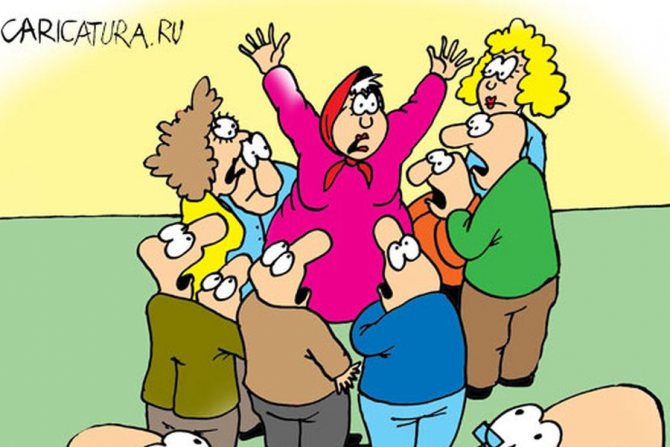
Despite our explanations, ardent representatives of the parent community continue to make erroneous assessments. The heroine of my previous material at the Parliamentary hearings spoke in unison with E. Alshanskaya, again accusing FZ-120 and calling for its radical change. I had to point out this mistake in my speech.
Unfortunately, social activists who do not work with “cases” sometimes do not understand the difference between a bad law and departmental lawlessness - and what needs to be proposed depends on this understanding. Already in March, I had to read that Federal Law 120 allows “the removal of children from families in difficult life situations.” This is a well-known confusion among inattentive readers of the law. Article 13 allows such children to be admitted to the SRC. But these are actions after removal; they require that the children were first removed (or were in the system for another reason, for example, by voluntary application). Article 13 is the powers of the SRC, the grounds for admission, not withdrawal. And the grounds for seizure are given in another article (21, powers of the PDN), in which there is no “difficult life situation”, just as there is none even in order No. 845 organizing lawlessness. For the consistency of the law, it would be necessary to add to article 21 the authority of the police to transfer seized children in the SRC (where should we put them?), but this is a technical, not a radical amendment.
Alexander Kovalenin, RVS
How to challenge the deprivation or restriction of parental rights?
Only a court can deprive or restrict parents of their rights to their children - an appropriate decision is made. It can be contested within 1 month from the date of acceptance in final form.
How to do it:
- File an appeal to a higher authority. The appeal itself is first submitted to the court that made the contested decision, and then forwarded to the appellate authority.
- Wait for notification of the meeting date. Such cases are considered in the general manner prescribed for courts of first instance.
- Come to the meeting and present evidence indicating that the previous decision was made unlawfully. If the circumstances have been eliminated, confirm this with documents or other facts;
- Obtain an appeal ruling. The case is considered within 2 months from the moment the complaint is submitted (Article 327.2 of the Code of Civil Procedure of the Russian Federation).
Based on the results, the decision will be left unchanged or sent for reconsideration to a lower court.
Legal advice: even if you have completely reformed and want to return your child, first you need to establish contact with him. When considering the issue of lifting a restriction or depriving parental rights, the court takes into account the opinion of children over 10 years of age, and it is often decisive.
Elena Plokhuta
Lawyer, website author (Civil law, 7 years of experience)
Sample appeal
The appeal includes the full information provided for in Art. 322 Code of Civil Procedure of the Russian Federation:
- name of the appellate authority;
- the name and address of the court that made the contested decision;
- case number;
- details of the decision;
- circumstances indicating the illegality of the decision;
- demands to overturn the previous verdict.
Sample appeal against a court decision on deprivation of parental rights:
Consultation on document preparation
Documentation
When appealing to the appellate authority, in addition to the complaint, documents are provided that were previously presented to the lower court during the proceedings.
You may also need:
- medical certificates;
- witness's testimonies;
- characteristics from the parents’ place of work;
- characteristics from the child’s place of study.
It is necessary to provide all evidence confirming that the minor’s stay and residence together with his parents does not pose a danger to him.
State duty
The amount of the state fee when applying to a higher court is 50% of the amount paid for the court of first instance. You will have to pay 150 rubles.
How will the trial proceed?
The meeting will be attended by representatives of the guardianship authority, the prosecutor, the child’s parents, the child himself (if there is a need for this, as well as if it is possible for him to be at the meeting), as well as other interested parties. It should be noted that the court hearing in this case will be closed. This is justified by the current Code of Civil Procedure of the Russian Federation, according to which cases related to the adoption of a child are considered only in closed processes: the presence of a large number of strangers, including the media, can negatively affect the child’s psyche and cause further problems.
Lawyer answers to questions
We have a normal family, but our son constantly screams because he doesn’t want to do his homework. Can the guardianship authorities take him away?
No, a child’s reluctance to study is recognized as the norm in most cases, but educational institutions can check the living conditions, talk with the son and neighbors, and then draw up a report. When making a selection decision, all circumstances are taken into account as a whole.
What to do if a child was taken without a seizure certificate?
The report must be presented to the parents. To appeal the unlawful actions of the OOiP to the court with an administrative claim.
I want to challenge the deed of selection. What evidence should be presented to the court in order for the child to be returned?
You can submit salary certificates and request witnesses to be called. The list of evidence depends on the reason why your child was taken from you. If the reason is being intoxicated, you can provide certificates from a drug treatment clinic confirming that you are not registered.
Can a child be taken to the hospital without the mother's knowledge?
Yes, if removed, the child can be placed in a medical facility to provide qualified assistance without the mother’s permission.
Can guardianship authorities pick up a child if the parents were intoxicated during their visit?
In addition to intoxication, other factors are taken into account: the appearance of the minor, how he is treated, etc. If the parents do not drink alcohol regularly and conscientiously fulfill their obligations, but drink alcohol occasionally, selection is hardly possible.
Neighbors are threatening to contact the child welfare authorities due to the frequent crying of their infant daughter. Can our child be taken away from us?
No. Moreover, the cry of a small child is not considered noise. neighbors cannot report you to the police. The only thing is the opportunity to inform the guardianship department. But the commission will only check the features of the child’s maintenance.
The procedure for removing a child from the family
Article 77 of the RF IC states that if an immediate threat to the life and health of a minor is detected, guardianship and trusteeship officials have the right to remove the child immediately, without any advance warning. In this case, parents or guardians (trustees) do not have the right to interfere with this procedure.
How does the withdrawal take place? Let's consider the algorithm of the procedure:
- The Public Prosecutor's Office receives a complaint about the unlawful actions of the child's parents, or the family has long been registered with the guardianship and trusteeship authorities as dysfunctional and they visit it as planned.
- In the first option, PLO employees study the information received and take measures to verify it on the spot.
- When visiting a family, the child’s living conditions are checked.
- If the facts specified in the complaint are confirmed or the parents independently discover facts or actions that pose a threat to the life or health of the child, the child is confiscated.
- In the event of children being taken away, OPP officers read a notice to the parents about the removal of the minor.
- Until all the circumstances are clarified, the child is under the care of the PLO, so he is placed in a social institution involved in raising children, or, if necessary, in a medical institution.
- Further proceedings take place in court. The guardianship and trusteeship authorities file a claim in court for deprivation of parental rights, while they act in court as the legal representative of the child, protecting his interests.
- If the court's decision is positive, PLO officers try to find citizens from among the child's relatives who agree to take him in as foster care. If such relatives are not found, the baby is transferred to an orphanage for upbringing.
The mother's children were taken away because she had no documents in her hands
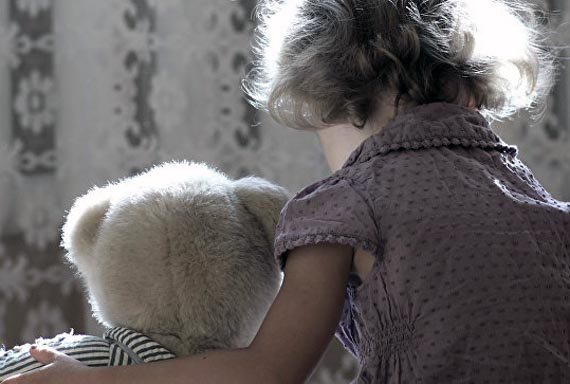
Photo from the website kleinezeitung.at The Shchelkovo court of the Moscow region refused to restrict the parental rights of Alla Kendenkova, whose two young children were taken away from her in the spring. Alla did not agree with such actions and arbitrarily took the kids from the shelter where they were sent, and also went to court to the police and guardianship authorities, considering their actions unlawful.
The children were taken away from Alla Kendenkova in early March in Fryazin, near Moscow. A strange situation occurred at the local Gorod hotel, where Alla temporarily lived with her children, sons Daniil and Platon, now the boys are 2.5 years old and 1 year and 8 months old, respectively.
As Alla’s lawyer Nadezhda Goltsova , the logic of the behavior of the guardianship authorities is difficult to explain: “The complaint to the regulatory authorities came from the hotel administration. Alla says that the relationship with the hotel was excellent exactly until the time when Alla had critical remarks about the quality of the hotel. And claims arose: allegedly Alla does not have documents for her children. She did not have the boys’ birth certificates with her and they were not included in her passport, which is what the guardianship authorities found fault with. But they were registered at the hotel, checked in, and there were no problems.”
As the Miloserdiya.ru correspondent found out, Alla Kendenkova’s family cannot be called homeless, but she really found herself in a difficult situation. According to some reports, when selling her apartment, Alla was left without money, as a result, without housing and without registration; her wealthy relatives do not help the woman.
For some time, Alla rented a country house in Fryazino, she planned to rent it in the summer, but in March, during the holidays, the owner of the house asked to vacate the house for a while - he himself planned to spend the March holidays there, and Alla and the children temporarily moved to a hotel. There, guardianship officials came to her.
In its lawsuit to the court, the Department of Guardianship and Trusteeship of the Moscow Region Ministry of Education for the Shchelkovsky District reported that the hotel called the police at night because “Kendenkova was making noise at 3 a.m. and was rude to the staff.” And the police discovered that Alla did not have documents for the children with her (they remained in the house that the woman rented).
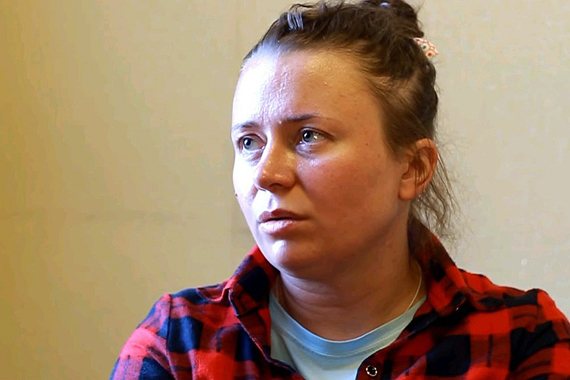
Photo from the site ivan4.ru
The guardianship staff were confused by the fact that the children were “dressed in overalls on their naked bodies,” and “there was no food,” and due to the fact that Alla Kendenkova “did not provide documents confirming her relationship with the children,” Daniil and Platon were placed in hospital.
This happened on March 6, and on March 15 the children were transferred to the Fryazino orphanage. Then the boys were sent to the Ruza orphanage.
Alla was informed that she could visit the children, but must rent a living space “to resolve the issue of returning the boys to the family.” This issue was supposed to be resolved at the commission on juvenile affairs on April 4, but Alla did not come there.
The behavior of the children’s mother also seemed strange to the guardianship authorities, because it “constantly changed from friendly to aggressive,” and the guardianship officers even suggested (as again stated in the statement of claim), “the use of psychotropic substances or the presence of mental illness.”
When Alla came to the children, as the guardianship staff claimed, she “behaved inappropriately” - she “spoke in a raised voice” and tried to take the children out into the street undressed.
However, the court refused to restrict the parental rights of Alla to the guardianship authorities. According to the woman’s defense, there is nothing specific in the lawsuit: “After all, Alla’s antisocial behavior was not recorded, she does not abuse alcohol, drugs, etc. That is, the reason for the removal of the children was only because there were no documents, and that when they (police officers and guardianship authorities) came, she behaved aggressively, says lawyer Nadezhda Goltsova. – Well, how else to behave, Alla did not know the procedure for selecting children and did not understand why they were being taken away at all. And at some point emotions took over. But Alla did not give any false information about herself.”
Elina Zhgutova, a member of the Commission of the Public Chamber of the Russian Federation for the support of family, motherhood and childhood, believes that the police and guardianship authorities “acted with barbaric methods”:
“A child cannot be considered neglected if the mother is nearby. You cannot seize children; you must wait for confirmation - documents or DNA tests. We made a request to the Investigative Committee and the prosecutor's office about what happened. And just the other day we received an answer - these authorities, apparently, are not aware that we won the court - it says that these children are “homeless”, which allows them to be taken away.
However, this is a direct violation of the law. The removal of a child occurs under Article 77 of the Family Code of the Russian Federation only if there is a threat to the life and health of the child. A certain procedure must be followed. But, of course, it is not respected. They simply invite the police and draw up an act of homelessness and neglect.
It turns out that even if a child is walking down the street with his grandmother, regulatory authorities can write that he is neglected, since the grandmother is an inadequate guardian, and take him away. The approach is formal."
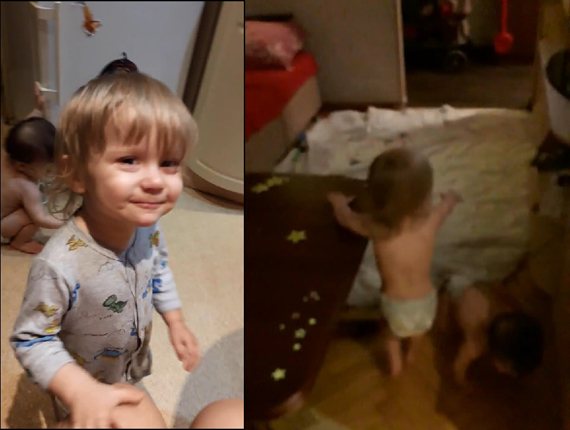
Children of Alla. Photo from the site ivan4.ru
Elina Zhgutova reminds that what happened also violates the civil rights of the child, because children are also citizens and they have rights.
After visiting the children several times, Alla climbed out the window with the boys and ran away. As a result, she is also charged with articles of the Criminal Code of the Russian Federation, although Alla Kendenkova’s defense says that they have not yet seen documents, for example, a resolution to initiate a case.
“As far as I know, Alla is charged with Article 213 Part 2 of the Criminal Code, this is “hooliganism,” although in relation to her actions there could only be an article for “arbitrariness,” this is in the worst case. After all, Alla restored her rights! At this time, she was not deprived of parental rights. But it was the guardianship authorities who violated the rights of children.”
“The children were taken to an orphanage, and the state was responsible for them at that moment, and since the mother took them, the state reacted to this as a kidnapping,” says Elina Zhgutova. – This situation, in my opinion, happens very often. And these are not options when parents are alcoholics or drug addicts. These are people in difficult financial situations.
For example, graduates of orphanages often suffer - their children are taken away from them! They are under the close attention of the guardianship authorities, and in these cases the guardianship officers refer to a certain “lack of emotional-volitional potential in the mother,” which will prevent her from raising children in the future.”
Elina Zhgutova believes that the actions of the guardianship authorities do not help, but harm families: “We, as part of a working group in the Council of the Federation of the Russian Federation, are preparing proposals for amending the Family Code of the Russian Federation. And almost every article there needs to be changed.
For example, if a guardianship sees disagreements between a child and a parent, then she now has the right to take over guardianship. This needs to change. There's a lot of absurdity there.
But the most important thing is that we need to change ideology to mercy. Guardianship authorities should rush to find solutions to help parents in trouble, and not look for their guilt. The presumption of parental integrity must apply.”
Alla Kendenkova filed a counterclaim against the police and guardianship authorities, and the first hearing in the case will take place on August 1. The woman wants to recognize the actions of these government agencies as illegal.
“We consider the requirement to present birth certificates illegal in principle,” says Elina Zhgutova. “There are also children walking on the streets, and they don’t have birth certificates with them!” This does not mean that they need to be put in large numbers in infectious diseases departments of hospitals until their parents bring birth certificates.”
Experts' comments
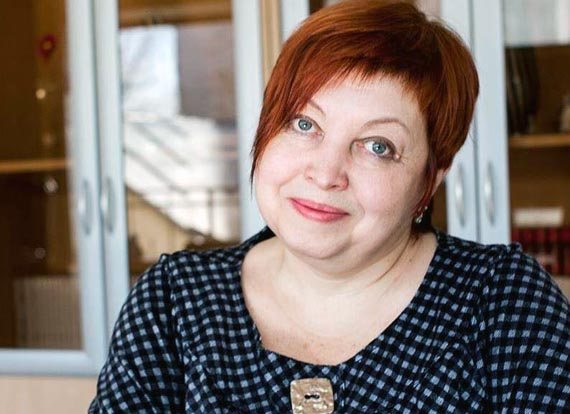
Natalya Mishanina. Photo: facebook.com/namishanina
Natalia Mishanina , head of the psychological service of the Arithmetic of Good Foundation
– There are two sides to this story: formal and personal. From a formal point of view, the guardianship authorities followed their own rules and protocols. A signal has been received from the public, which means we need to respond to it urgently.
And they reacted as best they could, that is, formally. If there is no permanent home, no husband, no documents, then two small children are in danger. It’s as if a red light comes on in the specialists’ heads as a signal to immediately carry out the task of saving children from a negligent mother. And here, unfortunately, we are not talking about any individual and personal approach to analyzing the situation.
There are no such concepts as contact, assessment of the situation, sympathy, empathy, mercy, finally. We are also not talking about providing assistance to families and children who find themselves in difficult situations.
The model of guardianship is simple: signal - reaction - taking away children - punishing a negligent mother - writing acts - reporting to superiors that the work is done.
Behind the scenes of this story is the fate of one small family. Maybe not so ideal, in the opinion of specialists from the guardianship authorities. And in this family there is a mother who finds herself in a difficult situation, alone, carrying two small children. At the same time, this family has love, warmth and care.
One gets the impression that the specialists of the guardianship authorities have hardened their souls, they live by their own standards of the system, understandable only to them, in a narrow corridor of short-range perception, with a consciousness clouded by reports. Then a “cold war” is declared on negligent mothers. And hostilities are turning against children.
State aunts and uncles punish children for something by depriving them of their mother and family. And this is at a time when this particular body should stand up for the protection of the rights of the child. And his right is to live and be raised in a blood family. And even if in a family that is not entirely perfect, it is where there are people close to the children.
What kind of protection of motherhood and childhood are we talking about in this case? What is the priority of the blood family? It’s as if everyone is reading different documents and state messages. Instead of protecting the child’s rights to a family, protecting the child from the family. And if a family suddenly finds itself in a difficult life situation, it immediately signs its own death sentence.

Diana Zevina. Screenshot: youtube.com
Diana Zevina , psychologist, director of the “Don’t Spill the Water” program of the “Our Children” Foundation
– The described situation looks strange. At that time, when the mother took the children from the orphanage, she was not limited in parental rights or deprived of parental rights, and she could pick up her children from anywhere and at any time, so the charges of abduction are unfounded.
The accusation that the woman lived with the children in a hotel and had no documents is also not a reason for taking away the children.
Controlling organizations - guardianship authorities, commissions for minors - do not really have precise, clear criteria for assessing the risk of a child. A child can be taken away only if there is a risk to his life or health.
But who and how can decide whether there is a risk? As a result, decision makers are guided by their common sense, which is different for everyone, and their ideas about what is good or bad for the child. And most of the cases when children are taken away are not criminal, they are often on the verge.
There are fewer dangerous, truly terrible cases. But the children are still taken away. It’s easier for them to play it safe, because if something really happens in this family later, they are responsible for it. Often, regulatory authorities are guided by their opinion “parents are strange,” but any of them can seem strange.
Notice that my mother says that the children always cried when she left after visiting them. This reaction suggests that the children had and still have a healthy emotional attachment to their mother. This is a very important contact for a small child. An emotional connection with a close adult is very important for a child. But this is often not taken into account by the guardianship authorities; they were not taught such subtle matters, but this must be taken into account, and not just the cleanliness or availability of food in the refrigerator. After all, the material component can be corrected, you can help your mother, perhaps give her a break by placing her in social housing while she looks for work, and so on.
But the emotional component cannot be corrected, and you can even ruin everything. Separation from a loved one and placement in an institution is extremely traumatic for the child’s psyche.
Often the guardianship authorities argue: “Children will be better off in an orphanage, there are good premises and teachers.” In fact, it will be safer for the children if they stay with their mother and the mother gets help.
But for a mother, this is often a real quest if there is a problem with documents or housing. But it is easier for guardianship to take children away than to organize assistance for the family. Guardianship authorities are overloaded; they do not have specialists on their staff who could work with such families - psychologists, social workers.
A mother without housing, and this often happens including graduates of orphanages, single mothers, and mothers in a crisis situation, is in a vulnerable position. And even state crisis centers accept only those mothers who are registered in a given region.
Now, fortunately, such unfounded cases of taking away children are less common. But the fact that we do not have a system for helping such families is the main problem.

